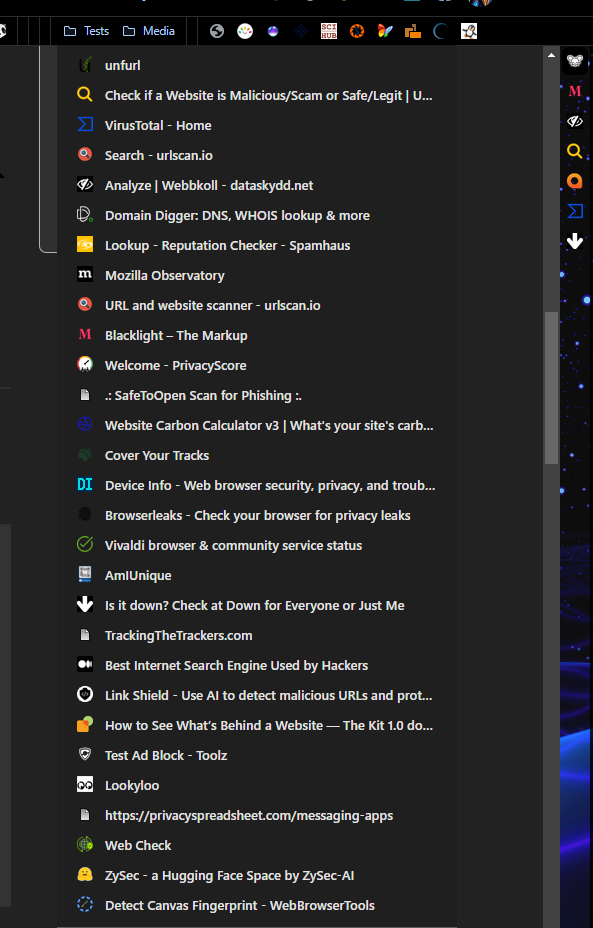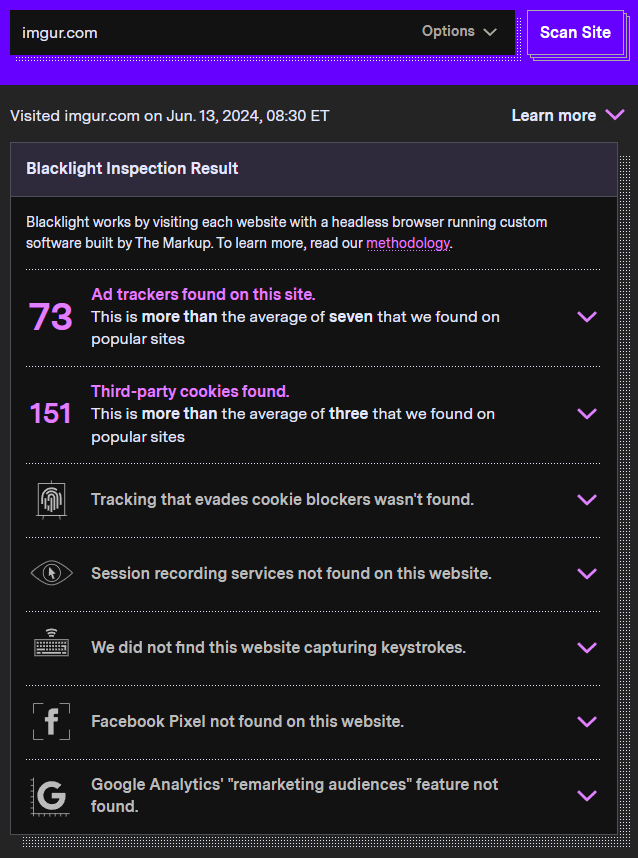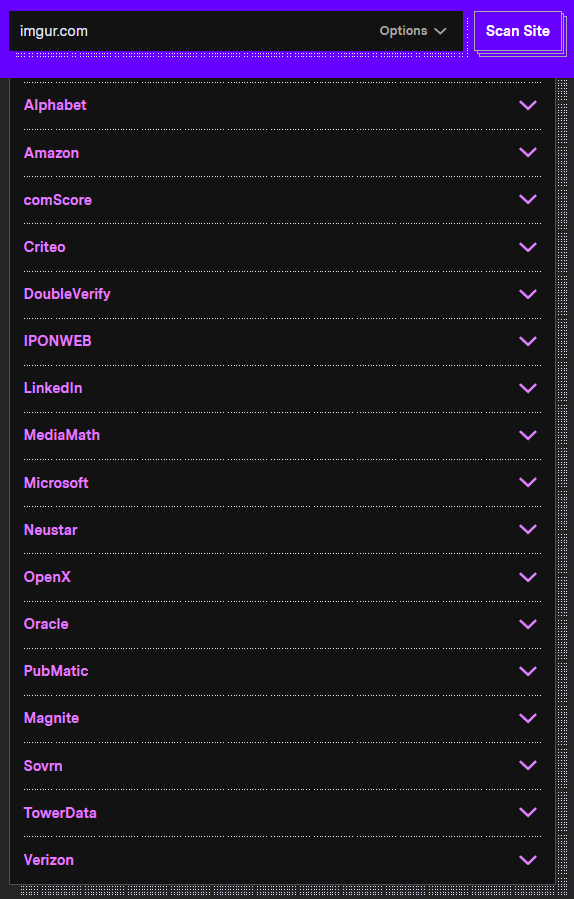Yes, Croc is AFAIK the best alternative, no man in the middle, but if you can’t be online for the downloads, the best is Sharrr, anyway lightyears better than Dropbox or similar big company crap.
Black belt in Mikado, Photo model, for the photos where they put under ‘BEFORE’
- 12 Posts
- 60 Comments

 12·5 months ago
12·5 months agoYes, Vivaldi isn’t fullFOSS, because 5% of the script of the unique UI is proprietary of Vivaldi, but it’s 100% auditable and even moddeable by the user, they even show how to do it in its community. Edge and Chrome would fork it in the same moment when Vivaldi make it OpenSource, killing all other Chromium and Vivaldi itself. Maybe in the future it will go full OpenSource, there are still intern debates about it. The sense of OpenSource is to be capable to collaborate in new products, but with almost 100 browsers and forks in the market, this value is pretty debatable. For the user is more important the ethics of the company respect the user, in this case a european, employee-owned cooperative, which is given with a full transparency in all it’s services included in the account (mail, calendar, feed, blog, the Vivaldi Mastodon instance, e2ee sync in own server, etc.).

 63·5 months ago
63·5 months agoVivaldi, good maintaned, no calls to Google, inbuild and customizable ad and trackerblocker. If Chromium, than this one.

 2·5 months ago
2·5 months agoIt should not be missing from the Bookmarks:
- https://themarkup.org/blacklight
- https://webbkoll.dataskydd.net/en
- https://www.urlvoid.com
- https://www.virustotal.com/gui/home/url
Also usefull
There are also some more I use


 1·5 months ago
1·5 months agoYes, in Linux you need 3-4 different apps to do the same as you can do with ShareX

 2·5 months ago
2·5 months agoYes, but anyway, everybody wish ShareX in Linux, but nobody dares to fork ShareX for Linux. Until now there sadly isn’t any equivalent tool for Linux

 15·5 months ago
15·5 months agoFlameshot is a really nice screenshot tool, but the big drawback is, that it only upload to Imgur, one of the worst Data hogs. The best and most complete is ShareX, there you can set the destinations to your like, but it has also a big drawback, it’s Windows only (depends on NETframework, same as Greenshot)
 ➡️
➡️ 
You can use Flameshot, but recomment to store the screenshots only locally and upload to share/host later to, eg vgy.me, or some self hosted one, like FileCoffee (valid for all type of files, image, video, multimedia, documents, presentations, etc.)

 6·6 months ago
6·6 months agoAt least for my city OSM is pretty complete with all business in it, A alternative is Here Maps, which also show all traffic and public transport lines, apart of the business sites. The only thing that no other map has is the Google Street View (Here at least has a 3D view), but I can live without this.
As I said before, ReviOS isn’t a OS as such. In Windows I used the Hellzerg Optimizer to gut privacy invading parts, services and nags. Well ReviOS is something similar, but in extremis, leaving Windows with just enough to function as an OS, without unnecessary functions, services and telemetries, with the half of its default size. But independent if you use the ReviOS setup or ISO, you need Windows first, precisely because RevisionOS isn’t a OS as such.
You know all entity from all the FOSS you use?
Well, ReviOS isn’t a own OS as such which substitute the existing Windows, like eg. ReactOS, it’s an FOSS tool which convert an existing Windows to something acceptable. It’s because of this not so different as posting any other FOSS for Windows, like the hellzerg Optimizer on steroids. See here the changes made by ReviOS https://www.revi.cc/docs/faq/before/features/

 2·6 months ago
2·6 months agoMaybe the old Winamp goes OpenSource, like the old MS DOS. But certainly not the current or last version. Anyway there are several way better FOSS alternatives to Winamp. It’s not a big problem for MS or any other company to release the source of an outdated version which anymore create incommings. In GitHub they still can control Winamp.

 15·6 months ago
15·6 months agoNot only that FOSS use GitHub and other proprietary hosts, they even in much cases contain APIs of Google, M$, Amazon, Fakebook & cia, APIs also offered as FOSS by Big Brothers. Since these companies have entered the world of OpenSource, what was previously considered free software is becoming more and more perverted.
It’s ridiculous when I want to use an OpenSource service where an account is necessary, most of the time a window appears with the kind offer to log in with a Google or Facebook account or that this service send data to googleanalytics, googletagmanager and Alphabet, like ocurres with an account in Mozilla.
Time to update and redefine what free software should be.
OpenSource is only as good as an active community it has, bad if not and with an lazy dev. FOSS without an update since years is risky crap.
MS-DOS, Source public available on March 25 2014 with MS Research License, released with as Free Software MIT license in 2018, this yer released as Open Source MS-DOS 4.0. Anyway, the Source code was available since 2014, only different licenses since then.
Yes, there are several p2p apps. Some years ago I used O&O FileDirect, which is very good, free, private (by deinition in this type o sharing), fast and easy to handle, but it’s proprietary soft by an German company and Windows only.







Agree, and this is why there are only three engines out there since more than 20 Years (+2 testiminial forks, Goanna (Gecko) and Qt (Blink), apart of KHTML only used by KDE in its Konqueror, grandfather of WebKit and Blink).
But the engine nowadays isn’t the main problem and pretty irrelevant, the main problem is that Google control 3/4 part of the websites, imposing it’s standart. All engines are FOSS and every company and dev can adapt these to his like. Chromiums are struggeling now with Mv3, but mostly due to the extensions frm the Chrome Store, not so with inbuild features (adblocker and other related privacy functions), in other extensions related to the UI, translators, tabs and similar, it’s irrelevant for the user if it is Mv2 or Mv3.
In the choice of a browser there are only few questions
That are mainly the points, but as said, arguing about which browser is better is arguing about the wrong problem, which are the web standarts, not the browsers.